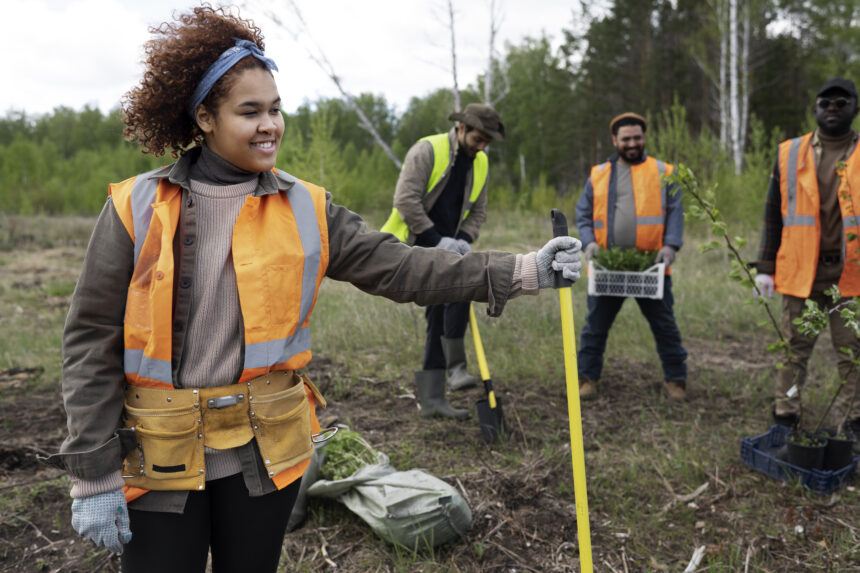South Africa, a country known for its rich biodiversity and natural landscapes, faces numerous environmental challenges. To combat these challenges and promote sustainable development, innovative approaches are required. One such approach involves leveraging the power of collective investments through Stokvels, a traditional savings and investment scheme prevalent in South Africa. In this case study, we explore how Stokvels have been instrumental in funding environmental conservation projects across the country.
Understanding Stokvels:
Stokvels, derived from the term “stock fair,” are informal savings and investment groups that have been a part of South African culture for generations. Members voluntarily contribute a fixed amount of money to a common fund on a regular basis, typically monthly, with each member taking turns to receive a lump sum payout. These groups are based on trust, shared responsibility, and community support.
The Rise of Stokvel Investments in Environmental Conservation:
In recent years, there has been a noticeable shift in the objectives of certain Stokvels, with members recognizing the importance of environmental conservation and sustainable practices. These Stokvels have emerged as a unique and effective channel for mobilizing financial resources towards environmental projects.
Case Study: The “Green Earth Stokvel”:
The Green Earth Stokvel is a prime example of how Stokvels are actively contributing to environmental conservation efforts in South Africa. Comprised of environmentally conscious individuals, this Stokvel focuses on investing their pooled funds into projects that promote biodiversity conservation, reforestation, renewable energy initiatives, waste management, and sustainable agriculture.
- Biodiversity Conservation: The Green Earth Stokvel partners with local NGOs and conservation organizations to fund initiatives aimed at protecting endangered species and their habitats. This includes projects such as anti-poaching patrols, habitat restoration, and community education programs.
- Reforestation: The Stokvel recognizes the importance of reforestation in mitigating climate change and rehabilitating degraded ecosystems. They invest in tree planting campaigns, working closely with forestry experts and local communities to ensure the long-term success of these initiatives.
- Renewable Energy: Understanding the need to transition to cleaner energy sources, the Green Earth Stokvel supports community-based renewable energy projects. They provide financial assistance for the installation of solar panels, wind turbines, and biogas systems in rural areas, promoting energy independence and reducing carbon emissions.
- Waste Management: The Stokvel invests in waste management projects, focusing on recycling initiatives, waste segregation programs, and community awareness campaigns. By collaborating with local waste management companies and recycling facilities, they aim to reduce the environmental impact of waste and promote a circular economy.
- Sustainable Agriculture: Recognizing the importance of sustainable food production, the Stokvel supports small-scale farmers and community gardens that employ organic farming practices, permaculture techniques, and water conservation methods. They provide financial resources for capacity building, infrastructure development, and marketing assistance.
Impact and Lessons Learned:
The Green Earth Stokvel and other similar initiatives have demonstrated that collective investments through Stokvels can generate significant positive impacts on the environment. By pooling their resources, Stokvel members have been able to fund projects that might have been beyond the reach of individual contributions. Furthermore, these investments foster a sense of ownership, pride, and accountability within the Stokvel communities, ensuring the long-term sustainability of the projects.
The success of Stokvels in environmental conservation highlights the importance of community-driven initiatives and the potential for grassroot-level contributions towards sustainable development. It also serves as a model for other regions and countries grappling with similar environmental challenges, showcasing how traditional financial practices can be harnessed to create meaningful change.
Conclusion:
Stokvel investments in environmental conservation projects in South Africa exemplify the power of collective action and community-driven approaches. By channelling their resources towards biodiversity conservation, reforestation, renewable energy, waste management, and sustainable agriculture, Stokvels are making a tangible difference in addressing the environmental challenges faced by the country. These initiatives showcase the potential of blending tradition with modern-day sustainability practices, providing valuable lessons for promoting environmental stewardship worldwide.










